- Wang Jin Wen as android
- Lulu as android
2046 is the final segment of a part of a trilogy by this director:
- Days of Being Wild (1991)
- In the Mood for Love (2000)
- 2046 (2004)
From its wiki site: "Total secrecy surrounded the film before its release, and this led to a lot of speculation as to the significance of the number "2046". ... It took four years to complete the film. During that time, production was closed because of the SARS epidemic in March 2003. The film premiered at the 2004 Cannes Film Festival with the film reels arriving straight from the laboratory, causing a delay in the festival schedule. After the premiere, Wong took the film back and continued editing until October, when it was released to theaters."
Special note: Many of the quizzes for this film will require that you know the names of the primary characters.
Special note: We are studying layering in this film. You need to notice how characters from the past, present and future are amalgamated. Many roles are played by the same actors or actresses, to increase this effect. It is not easy to keep track of everyone, however, you need to learn the below individuals (listed more or less of importance to the romantic storyline, not order of appearance or screen time; however, some are listed in a location that helps categorize the characters):
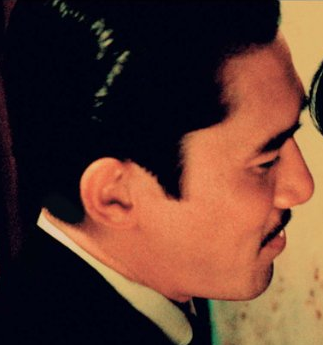
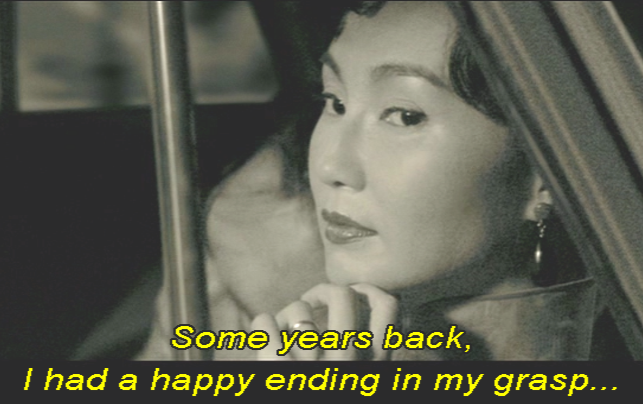
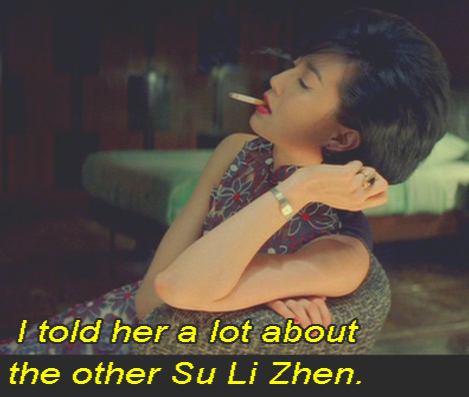
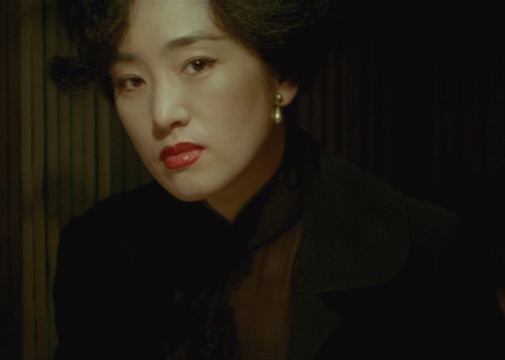
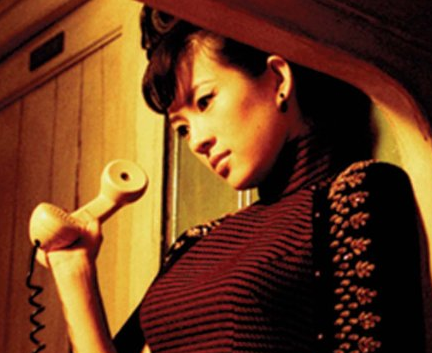
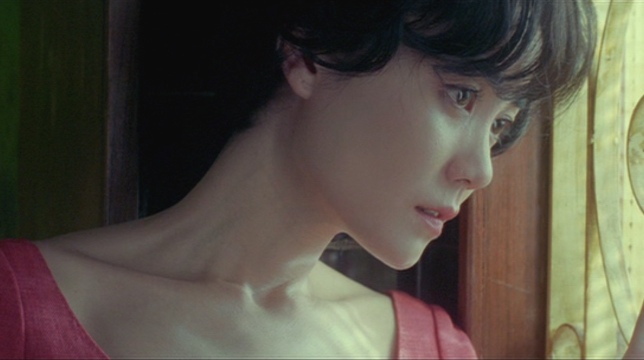
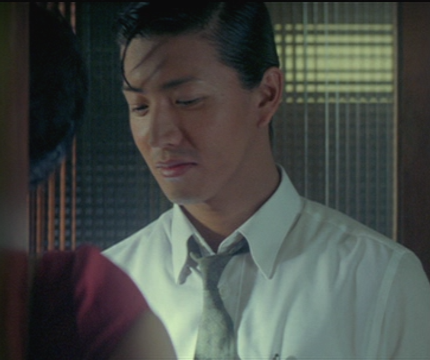
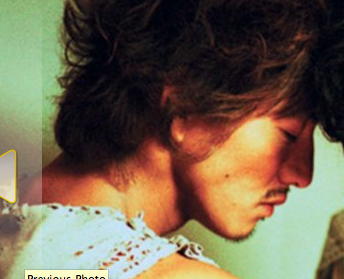
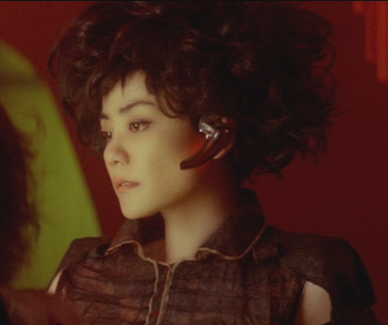
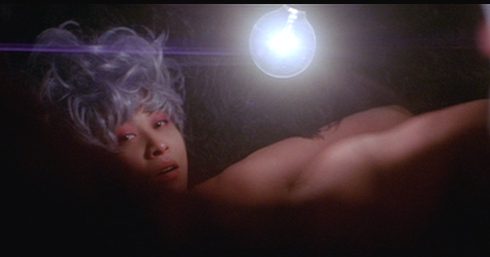
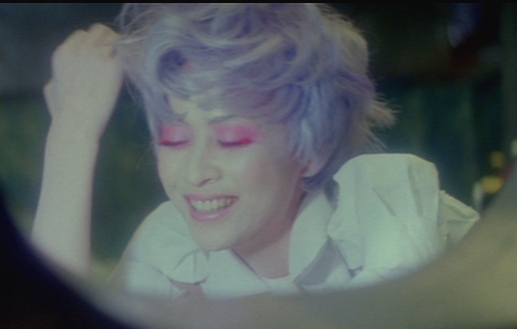
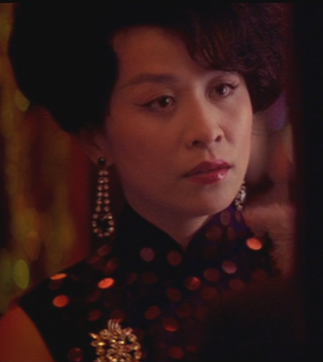
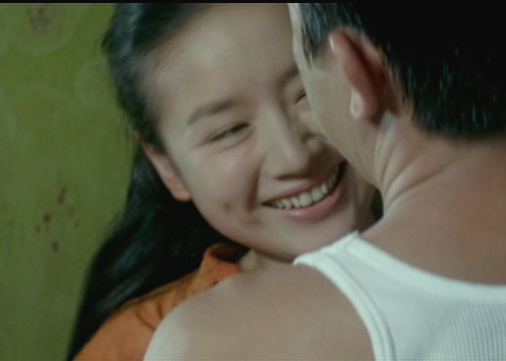
(list modified from the descriptions on this film's wiki site)
Chart of the main women of this film, from the perspective of romantic interests of Chow
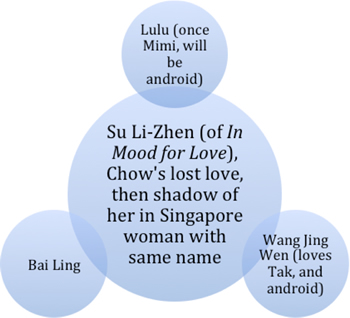
Wong Kar-Wai / Wang Jiawei (1956- ) 王家衛,王家卫
Days of Being Wild (1991) — cinematography: Christopher Doyle
imdb synopsis: "Set in 1960, the film centres on the young, boyishly handsome Yuddy, who learns from the drunken ex-prostitute who raised him that she is not his real mother. Hoping to hold onto him, she refuses to divulge the name of his real birth mother. The revelation shakes Yuddy to his very core, unleashing a cascade of conflicting emotions. Two women have the bad luck to fall for Yuddy. One is a quiet lass named Su Li-Zhen who works at a sports arena, while the other is a glitzy showgirl named Mimi. Perhaps due to his unresolved Oedipal issues, he passively lets the two compete for him, unable or unwilling to make a choice. As Li-Zhen slowly confides her frustration to a cop named Tide, he falls for her. The same is true for Yuddy's friend Zeb, who falls for Mimi. Later, Yuddy learns of his birth mother's whereabouts and heads out to the Philippines."
Chungking Express (1994) — cinematography: Christopher Doyle
scriptless, two linked stories, shot without much planning, came up with dialogue as the film developed … yearning, Hong Kong at night
Fallen Angels (1995) — cinematography: Christopher Doyle
In the Mood for Love (2000) — cinematography: Christopher Doyle, Pung-Leung Kwan & Ping Bin Lee
2046 (2004 ) — cinematography: Christopher Doyle & Pung-Leung Kwan
My Blueberry Nights (2007) — cinematography: Darius Khondji (director of photography) & Pung-Leung Kwan
Jude Law, Norah Jones, Rachel Weisz and Natalie Portman
Christopher Doyle (Australian, Psycho 1998, Quiet American, Hero, Last Life in the Universe also did a segment in Paris je t-aime, the "Port de Choisy" (which was a Chinatown like story) Fluent in Cantonese, Mandarin, and French. http://en.wikipedia.org/wiki/Christopher_Doyle)
2046 was released internationally at Cannes in 2004. This film was nominated for numerous awards. Box office performance was unremarkable but critical reviews were mostly very positive. Financial info (http://www.boxofficemojo.com/movies/?id=2046.htm):
$1,000,000+ (rounded) country ticket sales (in dollars) other than the U.S. The high sales in Japan reflect the popularity of movie-going in the country, the high cost of tickets and definitely Takuya Kimura's presence in the film.
- Japan 6,800,000
- France and Northern Africa 2,700,000
- Germany 1,300,000
- Spain 1,000,000
Total Lifetime Grosses
Domestic: $1,444,588 7.4%
+ Foreign: $18,025,651 92.6%
= Worldwide: $19,470,239
Domestic Summary
Opening Weekend: $113,074 (Flying Daggers was $397,472)
(#36 rank, 4 theaters, $28,268 average) (Flying Daggers was #19)
% of Total Gross: 7.8%
Widest Release: 61 theaters (Flying Daggers was 1,189 theaters)
Close Date: December 8, 2005
In Release: 126 days / 18 weeks
In keeping with our interest in considering unspoken feelings, which character seems to keep the most inside to himself or herself, and why?
In keeping with our interest in considering love expressed as longing, if we take "longing" to be the definition of romantic love, which character is most deeply in love? Remember that the object of that love may or may not exists, may or may not be alive, may or may not present.
(spoiler alert)
Same composer for original soundtrack as for Flying Daggers (listen to main theme at Scene 5)
Opens with futuristic train
Tak on the train back from 2046, and explaining that he went in search of a woman whom he had loved:
"Before when people had secrets they didn't want to share … they'd climb a mountain, find a tree and carve a hole in it … and whisper the secret into the hole … then cover it over with mud. That way, nobody else would ever discover it.
I once fell in love with someone. After a while, she wasn't there. I went to 2046. I thought she might be waiting or me there. But I couldn't find her. I can't stop wondering if she loved me or not. But I never found out. Maybe her answer was like a secret that no one else would ever know."
And a student has sent these details (thanks Yolanda!):
The long version of original story [a Greek myth] can be found here.
http://en.wikipedia.org/wiki/Midas
The popular Chinese version translated the story into a fairy tale and doesn't have all the business with Apollo. It's simply just the cited paragraph below."Midas [the King] was mortified at this mishap. He attempted to hide his misfortune under an ample turban or headdress, but his barber of course knew the secret, so was told not to mention it. However, the barber could not keep the secret; he went out into the meadow, dug a hole in the ground, whispered the story into it, then covered the hole up. A thick bed of reeds later sprang up in the meadow, and began whispering the story, saying "King Midas has an ass' ears". [Later on, everybody in the country just knows that the King has donkey ears.]
I'm fairly certain that director Wong didn't invent the digging hole concept because this is a somewhat well known fairy tale in China (despite the fact that he is in HK [I would just add, "in Hong Kong" yes but he's lived and studied all over the world].) However, I'm not sure if he's relating to this story or simply borrowing the concept. If he is relating, it would be interesting because the tale has the second part which is the secret got out and no secret can be kept.
“All memories are traces of tears” heads the scene
Chow Mo-wan tells Su Li-Zhen (same name as the woman he loved in In the Mood for Love) that he will leave for Hong Kong since there are no prospects for him here. Her eyes tear up. He asks if she will go with him; she says he knows nothing of her past.
They gamble to decide it; she wins, her indirect way of rejecting him.
Transitions to next scene with futuristic train
Chow Mo-wan makes a living writing porn in Hong Kong, and becomes a ladies man.
Chow Mo-wan meets a woman he knew in Singapore named Lulu. (She is also Mimi from the first film of the trilogy, Days of Being Wild, and she is an android on the futuristic train.) He speaks with her about her lost love-of-her-life, a Filipino man. He notices her room number is 2046 (the room where he had an affair with the woman he loved, Su Li-Zhen).
When he returns two days later to give back to Lulu her key, the hotel owner Mr. Wang says she is gone. (The same actor plays the conductor on the futuristic train.)
He returns to ask to rent 2046. It is closed for renovation but he can rent 2047, down the hall.
Actually, 2046 is blood drenched as Lulu’s boyfriend killed her; her relationships always ended sadly.
Cut to a woman speaking in Japanese, the daughter of Mr. Wang, named Wang Jing Wen. She says over and over “Let’s go.” (She has gone crazy, having been forced to leave her boyfriend, who looks like Tak on the futuristic train.)
Wang Jing Wen has a Japanese boyfriend (his Japanese company had sent him to Hong Kong, and he checked into the hotel) Mr. Wang is against the relationship. This man has no name but he is played by the same actor who plays “Tak” the lonely Japanese on the train in the future.
The Japanese boyfriend asks her if she loves him or not. No answer. He leaves for Japan.
But before that, Mr Wang and his daughter fight about him, using opera music to hide the yelling.
Chow also flirts with Mr Wang’s younger daughter (Wang Jie Wen)
Jing ends up in the hospital, Jie runs away with a boy (we are told, these events are not shown)
Chow stops going out; he begins writing a story called “2046” about men and women looking for love. Readers like it. But “2046” is just a room number to him.
No dialogue, vignettes from the story … jealous murder etc (and the Su Li-Zhen from Singapore is there a bit, as is Tak)
He becomes comfortable in his fictional world
Someone has again moved into 2046, a feisty woman, Bai Ling. Seductive, sassy Cuban music (“Siboney”). So, in the room so far: Lulu, then Wang Jing Wen, now Bai Ling.
Chow’s colleague, Ah Ping, wants him to set up a meeting with the new girl Bai Ling. He does so, but his friend is cheap in his approach, angers Bai Ling and Chow has to go to apologize.